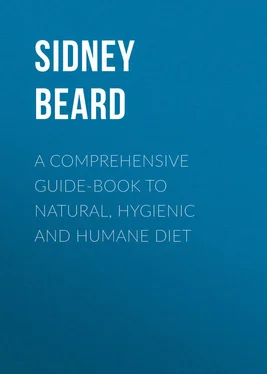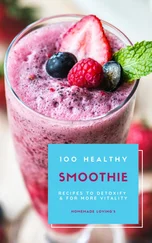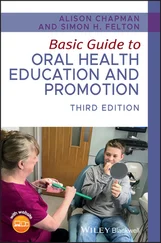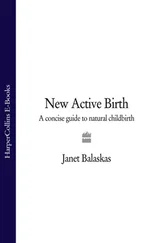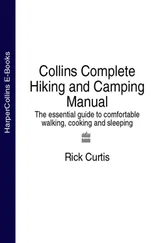Sidney Beard - A Comprehensive Guide-Book to Natural, Hygienic and Humane Diet
Здесь есть возможность читать онлайн «Sidney Beard - A Comprehensive Guide-Book to Natural, Hygienic and Humane Diet» — ознакомительный отрывок электронной книги совершенно бесплатно, а после прочтения отрывка купить полную версию. В некоторых случаях можно слушать аудио, скачать через торрент в формате fb2 и присутствует краткое содержание. Жанр: foreign_antique, foreign_prose, на английском языке. Описание произведения, (предисловие) а так же отзывы посетителей доступны на портале библиотеки ЛибКат.
- Название:A Comprehensive Guide-Book to Natural, Hygienic and Humane Diet
- Автор:
- Жанр:
- Год:неизвестен
- ISBN:нет данных
- Рейтинг книги:3 / 5. Голосов: 1
-
Избранное:Добавить в избранное
- Отзывы:
-
Ваша оценка:
- 60
- 1
- 2
- 3
- 4
- 5
A Comprehensive Guide-Book to Natural, Hygienic and Humane Diet: краткое содержание, описание и аннотация
Предлагаем к чтению аннотацию, описание, краткое содержание или предисловие (зависит от того, что написал сам автор книги «A Comprehensive Guide-Book to Natural, Hygienic and Humane Diet»). Если вы не нашли необходимую информацию о книге — напишите в комментариях, мы постараемся отыскать её.
A Comprehensive Guide-Book to Natural, Hygienic and Humane Diet — читать онлайн ознакомительный отрывок
Ниже представлен текст книги, разбитый по страницам. Система сохранения места последней прочитанной страницы, позволяет с удобством читать онлайн бесплатно книгу «A Comprehensive Guide-Book to Natural, Hygienic and Humane Diet», без необходимости каждый раз заново искать на чём Вы остановились. Поставьте закладку, и сможете в любой момент перейти на страницу, на которой закончили чтение.
Интервал:
Закладка:
Avoid Dyspepsia.One reason for urging simplicity is that, owing to prevalent ignorance concerning food-values, it is more easy for the inexperienced food-reformer to make dietetic mistakes than the flesh-eater.
By partaking freely of stewed acid fruits and vegetables at the same meal, or by blending a great variety of savouries, vegetables, sweets and rich fatty dishes together in a ghastly 'pot pourri,' or by eating to excess of porridge, beans, or fried dishes, many have made serious blunders. They, for want of proper instruction, have hastily come to the conclusion that "vegetarian diet does not suit them," and returning to the flesh-pots, have henceforth denounced the evangel of dietetic reform, instead of profiting by the useful lesson Nature tried to teach them.
The wisest plan is to make one's diet generally as varied as possible , but not to mix many articles together at the same meal .
Abstainers from flesh should begin to live to some extent (say two days a week) in picnic style, and the practice will soon become more habitual. A picnic luncheon which is considered enjoyable in the woods or on the moors will be found to be just as nice at home if the articles provided are well chosen and tastefully prepared. Variety can be obtained by introducing daintily cut sandwiches made with mustard and cress, tomato paste, potted haricots, or lentils, scrambled eggs, fancy cheese cut thinly, flaked nuts and honey, etc. Fresh and dried fruit, nuts, almonds, raisins and sultanas, fruit cakes, and custard or rice puddings, provide useful additions; and it will soon be found that the old-fashioned three or four-course meal which involves such laborious preparation is a needless addition to life's many cares.
Necessary Elements in Food.It is important to bear in mind that our daily food must contain a sufficient quantity of certain necessary elements:
(1) Protein. To be found in nuts and nut foods (such as Protose, Nuttoria and Fibrose, &c.), eggs, cheese, brown bread, oatmeal, haricots, lentils and peas.
(2) Fat. To be obtained in nuts, nut-butters, olive oil, cheese, milk, cream, butter, and oatmeal.
(3) Phosphates and Mineral Salts. Contained in the husk of wheat, barley, oats, and rye (therefore included in brown bread, granose biscuits and other whole-wheat or cereal preparations), cheese, bananas and apples.
(4) Sugar. To be obtained from all starch foods, but most easily and in the best and most readily assimilable form from sweet fruits and honey.
A PLEA FOR MODERATION
One of the most frequent mistakes made by those who commence to live upon a fleshless diet is that of eating too much – an error, also committed by the general public. Often, through ignorance of the fact that lean beef consists of water to the extent of about 75 %, and through having been brought up under the spell of the popular delusion that meat is a great source of strength and stamina, they jump to the conclusion that they must consume large plates of cereals and vegetables in order to make up for their abstinence from animal food. They bring upon themselves severe attacks of dyspepsia – either by eating excessive quantities of starch in the form of porridge, bread and potatoes, or of such concentrated foods as haricots, lentils or nuts (being ignorant of the fact that these latter are much more nutritious than lean beef and that only a very small quantity is needed for a sufficient meal) 2 2 See Table of Food Values.
.
Nothing does more injury to the Food-Reform Movement than the discredit which is brought upon it by those who upset themselves by over-eating, and who feel led to justify their defection by attacking the system they have forsaken. Among the numerous cases brought to my notice, I remember one of a minister's wife, who by partaking of seven meals a day, and finishing up at ten o'clock in the evening with cocoa, cheese and porridge, brought herself to such a state of nervous prostration that her local doctor ordered her to return to a flesh diet, "as she required nourishment ." He thus diagnosed her condition, instead of attributing it to preposterous over-feeding.
A Golden Rule for every food-reformer is this — Eat only when you are hungry , and never to repletion. An exception must be made, however, in certain cases of anæmic and delicate persons. When there is not sufficient vitality to cause appetite, or to digest food normally, it is often necessary to insist on regular meals being taken, notwithstanding the patient's distaste for food. Drowsiness and stupor after a meal are sure signs of excess, and I cannot too strongly urge temperance in diet. During my long experience of philanthropic work as an advocate of natural and hygienic living, I have only heard of a few cases of persons suffering any ill effects from eating too little, whereas cases of the opposite sort have been rather numerous. Ninety-nine per cent. of the centenarians of the world have been characterized by abstemiousness ; however much their ways and customs may have otherwise differed, in this one respect they are practically alike – declaring that they have always been small eaters, and believers in moderation in all things.
ARTISTIC COOKERY
In every household where reformed diet is adopted, effort should be made to prepare the meals in an artistic manner. If a dish is skilfully cooked and tastefully served it is not only more enjoyable but more easily digested.
The general custom in English homes is to serve vegetables in a rather slovenly style. To see how nicely such things as legumes, vegetables, salads and fruits can be prepared, one requires to go to a good French or Italian restaurant. But it is quite easy for us to learn the ways of our friends abroad, and to make our dishes look tempting and appetising.
One of the first lessons to be learned by the vegetarian cook is how to fry rissoles, potatoes, etc., quite crisp , and free from any flavour of oil or fat. To do this a wire basket which will fit loosely into a stewpan is necessary, and it can be purchased at any good ironmonger's shop. Nutter (refined coconut butter) is a well prepared form of vegetable fat, and it is retailed at a moderate price; it keeps for a long period and is equally useful for making pastry – three quarters of a pound being equal to one pound of butter. Where nut-butters cannot be obtained, good olive oil should be used.
The temperature of the fat or oil must be past boiling point, and should reach about 380 degrees. When it is hot enough it will quickly turn a small piece of white bread quite brown, if a finger of it is dipped in the fat. Unless this temperature is reached the articles to be fried may turn out greasy and unbearable. If the fat is heated very much beyond 400 degrees it may take fire. Haricots, lentils, and many other legumes are more tasty if made into cutlets or rissoles and fried in this manner, after being mixed with breadcrumbs and seasoning, than if merely boiled or stewed in the usual crude style.
The Art of Flavouring.The art of flavouring is also one which should be studied by every housewife. By making tasty gravies and sauces many a dish which would otherwise be insipid can be rendered attractive. The recipes for "Gravies" will prove useful on this point.
Many valuable modern scientific food products are not fully appreciated because people do not know how to serve them. Take 'Protose,' 'Nuttoria' and 'Nuttose' for instance – very useful substitutes for flesh which are made from nuts (malted and therefore half digested). If slightly stewed, and eaten without any flavouring, some persons dislike the distinctive taste; if, however, they are well cooked, according to the recipes printed later on in this book, and served with such garnishings as are recommended, they are usually much enjoyed, even by those who are prejudiced against all vegetarian ideas.
Читать дальшеИнтервал:
Закладка:
Похожие книги на «A Comprehensive Guide-Book to Natural, Hygienic and Humane Diet»
Представляем Вашему вниманию похожие книги на «A Comprehensive Guide-Book to Natural, Hygienic and Humane Diet» списком для выбора. Мы отобрали схожую по названию и смыслу литературу в надежде предоставить читателям больше вариантов отыскать новые, интересные, ещё непрочитанные произведения.
Обсуждение, отзывы о книге «A Comprehensive Guide-Book to Natural, Hygienic and Humane Diet» и просто собственные мнения читателей. Оставьте ваши комментарии, напишите, что Вы думаете о произведении, его смысле или главных героях. Укажите что конкретно понравилось, а что нет, и почему Вы так считаете.
